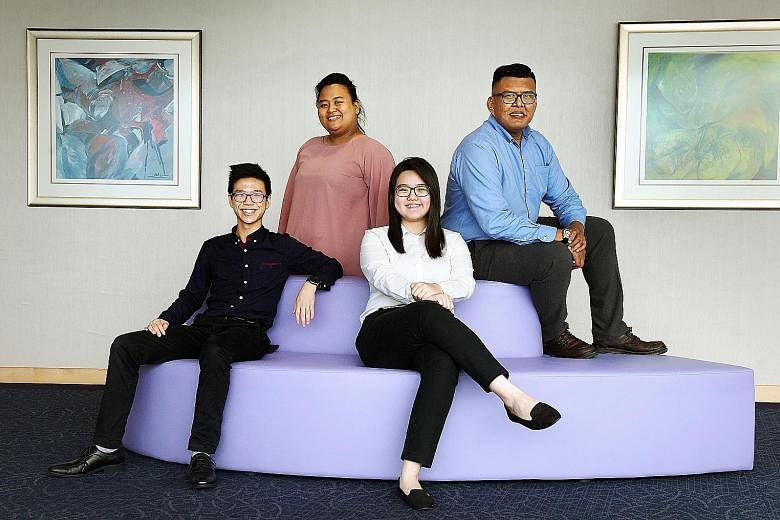Highlighting recent media reports on an Institute of Technical Education (ITE) graduate who was admitted to medical school and another who became a lawyer, Education Minister Ong Ye Kung said he was confident that many more such students will do well on academic and professional tracks.
Yet he also recognised that most ITE students are trained in skills, and said that provides another path to success, which the Education Ministry will continue to expand.
"Build upon the skills that ITE has given you; you have your whole life to do this," he told graduands at the annual ITE graduation ceremony yesterday.
He gave the example of 26-year-old chef Koh Han Jie, who graduated with a Nitec followed by a Technical Diploma in Western Culinary Arts at ITE. He made history as the first Singaporean to win the Young Talent Escoffier Asia culinary competition in 2017, and is now head chef at Elfuego at Jewel Changi Airport.
"There are many examples," said Mr Ong. "I meet so many ITE graduates working in hospitals. Many started as enrolled nurses, then went on to upgrade to become registered or staff nurses. I also have met many others who used these skills to start their own businesses in design, fashion, beauty, F&B... What they have achieved are what the majority of ITE graduates can achieve."
The key, he added, is to make sure that after graduation, they continue to learn and develop their skills.
"We don't have to front load all your training and education before you start work because that is not how skills acquisition works. You start work first, practise, gain experience and then go through formal training again, and restart that cycle," he said.
This can be through modular courses at the different tertiary institutions here. But doors also remain open for those who fail to get into polytechnics after ITE. After some time in the workforce, they can reapply and "the polytechnics will consider your work experience and demonstrated abilities instead of just your academic results", he said.
Close to 14,900 students, including adult learners, graduated yesterday. Three received the Lee Kuan Yew Gold Medal, awarded to the top graduate of each ITE college.
One of them was valedictorian Siti Nurhajah Haron, 24. She dropped out of nursing in 2013 to provide for her family when her father became too ill to work. "I didn't consult my parents before I dropped out and they were very disappointed," she told The Straits Times. "But I promised my mother I wasn't giving up; one day, I'd definitely graduate."
She went back to ITE in 2017, and yesterday graduated with a Nitec in nursing. Ms Siti is now pursuing a diploma in nursing at Nanyang Polytechnic, where her ITE credentials allowed her to enter as a second-year student. She said she hopes to return to ITE as a lecturer.

